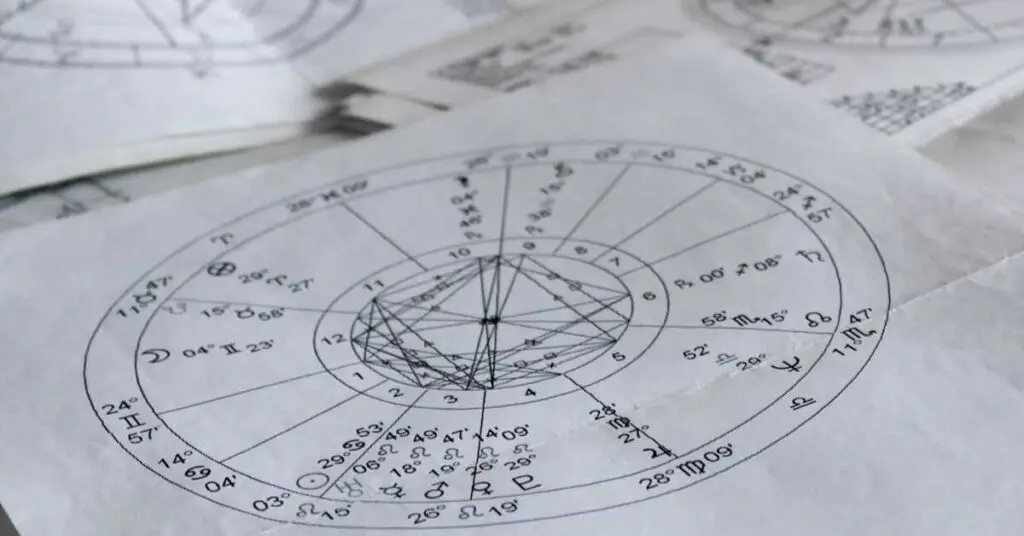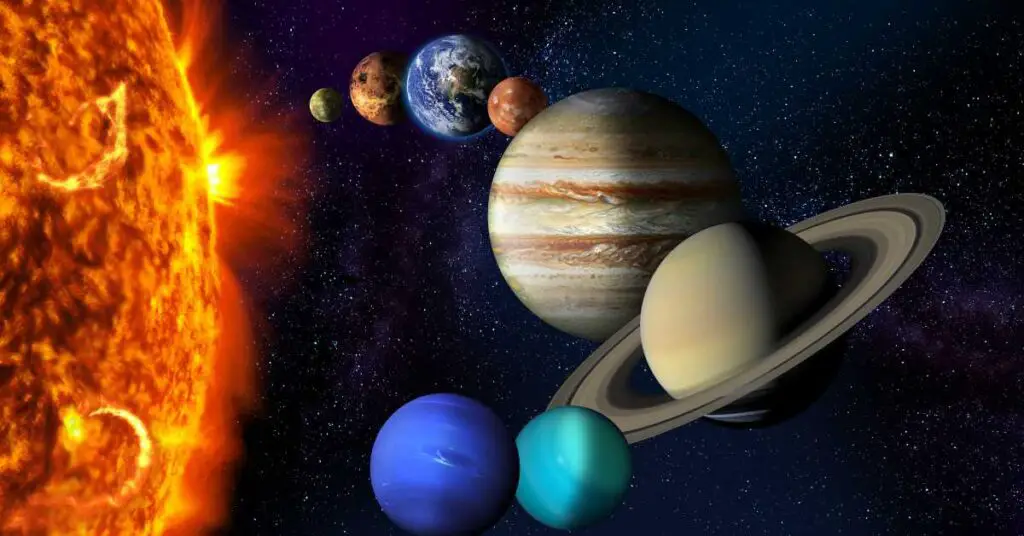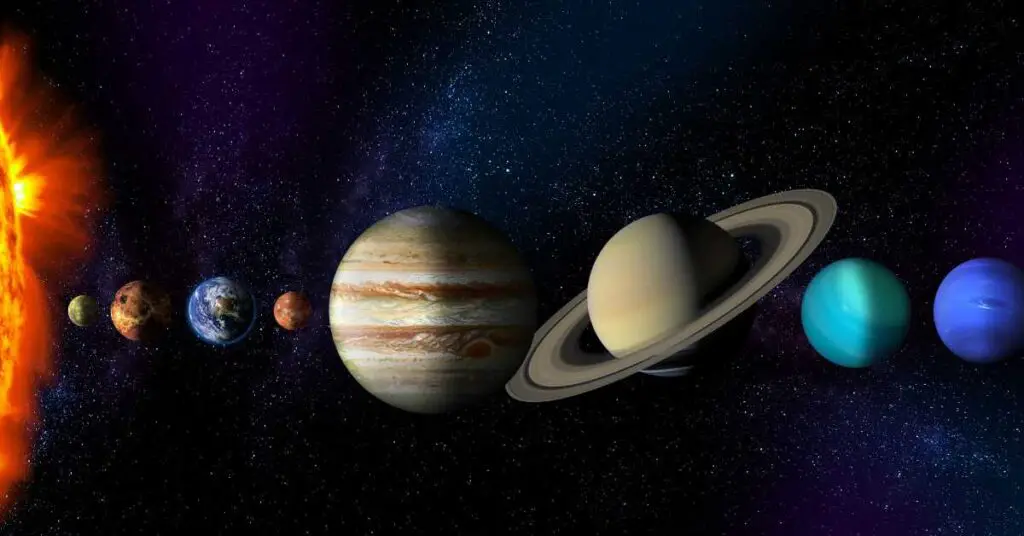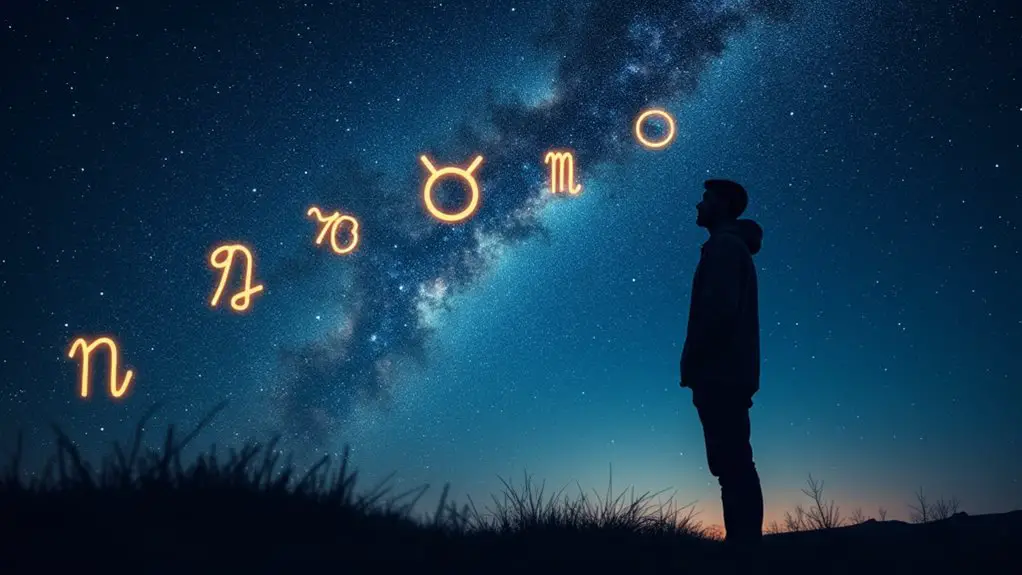Have you ever wondered what cosmic forces were at play during the moment of your birth? Well, buckle up, because we’re about to take a deep dive into the intriguing world of astrology and uncover the secrets of your birth chart.
Picture it as a cosmic snapshot, capturing the precise positions of the planets and celestial bodies at the exact time and location of your birth. This intricate map serves as a blueprint for your unique personality, emotions, and life experiences.
From the Ascendant, which reveals your outer persona, to the Sun, representing your core identity, and the Moon, unveiling your emotional landscape, each element of your birth chart paints a vivid picture of who you are.
By understanding the energies and influences of the planets, the areas of life represented by the houses, and even the impact of retrogrades, you can unlock a wealth of knowledge about yourself and your path in life.
So, get ready to embark on a cosmic journey of self-discovery as we explore the depths of your birth chart in astrology.
Key Takeaways
- A birth chart in astrology is a representation of the positions of planets and celestial bodies at the time of birth.
- The birth chart reveals important aspects such as the ascendant, sun, and moon, which influence different aspects of a person’s life.
- The positions of planets in the birth chart determine astrological influences on personality and life experiences.
- Understanding the dominant signs and elements in a birth chart helps to gain insights into personality traits and compatibility in relationships.
The Ascendant: Your Outer Persona
Discover the Ascendant, the captivating mask you wear to the world, that holds the power to mesmerize everyone you encounter.
The ascendant, also known as the rising sign, represents your outer persona and the first impression you make on others.
It is calculated based on the time and location of your birth and determines the sign that was on the horizon at that moment.
This sign influences how you express yourself and interact with the world around you. It shapes your appearance, demeanor, and overall energy.
Moreover, the ascendant plays a crucial role in relationships. It affects how you approach partnerships, friendships, and even casual encounters.
People with compatible ascendants often feel an instant connection, while conflicting ascendants may create challenges in understanding and communication.
Understanding your ascendant can provide valuable insights into your self-expression and the dynamics of your relationships.

The Sun: Your Core Identity
The Sun represents your core identity and is often referred to as the ‘heart of the chart.’ It is located at the center and radiates its energy to all other planets, just like the sun in our solar system.
Understanding the role of the Sun in your birth chart can provide valuable insight into your personal growth and development. Your Sun sign reveals your essential qualities, strengths, and aspirations. It influences how you express yourself and pursue your goals.
Additionally, the Sun sign plays a significant role in compatibility in relationships. When two individuals have compatible Sun signs, they tend to have an easier time understanding and connecting with each other. Conversely, conflicting Sun signs can create challenges and differences in communication and interaction.
By exploring the Sun’s influence in astrology, you can gain a deeper understanding of yourself and your relationships.

The Moon: Your Emotional Landscape
Immerse yourself in the captivating realm of emotions as you explore the Moon’s profound impact on your inner landscape.
The Moon, as the ruler of emotions in astrology, plays a crucial role in shaping our emotional experiences. Understanding the lunar cycles can provide valuable insight into our ever-changing emotional states.
The Moon represents our deepest emotional needs and desires, reflecting our instinctual responses and subconscious patterns. It influences how we nurture ourselves and seek comfort and security. By harnessing the power of the Moon in astrology, we can better understand and tend to our emotional needs.
Tracking the Moon’s movements through our birth chart allows us to align our actions and decisions with its energy. For example, during the New Moon phase, it’s a perfect time for setting intentions and starting new emotional chapters. While during the Full Moon, emotions may be heightened, offering a chance for release and self-reflection.
By acknowledging and working with the Moon’s influence, we can foster emotional well-being and growth.
The Planets: Energies and Influences
Engaging with the planets is like stepping into a cosmic dance, where each celestial body brings its unique energy and influences to shape our lives. The positions of the planets at the time of your birth play a significant role in astrology, as they determine the astrological influences that shape your personality and life experiences.
The Sun, as the center of our solar system, represents your core identity and the essence of who you are. It influences your ego, willpower, and self-expression.
The Moon, on the other hand, governs your emotional landscape and innermost desires. It affects your instincts, intuition, and how you nurture yourself and others.
Other planets, such as Mercury, Venus, Mars, Jupiter, Saturn, Uranus, Neptune, and Pluto, also have their own unique energies and influences. Mercury governs communication and intellect, Venus rules love and beauty, Mars symbolizes passion and action, while Jupiter represents expansion and abundance.
Understanding the planetary positions in your birth chart allows you to gain insights into your strengths, challenges, and potential life paths. By exploring these astrological influences, you can better navigate the cosmic dance and embrace the energies that resonate with your true self.

The Houses: Areas of Life
Explore the magical realms of your existence as you delve into the houses, the sacred spaces that give depth and meaning to every aspect of your life.
In astrology, the birth chart is divided into twelve houses, each representing a different area of life. These houses provide insights into various aspects of your personality, relationships, career, and spirituality. Understanding the significance of each house is essential in interpreting your birth chart accurately.
Here are four key points to consider when exploring the houses:
- The first house represents your identity, physical appearance, and how others perceive you.
- The seventh house symbolizes partnerships, marriage, and close relationships.
- The tenth house governs your career, reputation, and public image.
- The twelfth house relates to spirituality, hidden strengths, and self-undoing.
By analyzing these houses and their planetary influences, you can gain a deeper understanding of yourself and the different areas of your life.
The Aspects: Relationships and Connections
Discover the intricate dance of relationships and connections in your life as you explore the aspects, which reveal the unique dynamics between planets and their influence on your journey.
The aspects in astrology represent how different planets interact with each other in your birth chart, shedding light on the various relationships and connections in your life. Whether it’s romantic compatibility or family dynamics, the aspects provide insight into how these relationships function and the potential challenges and strengths they bring.
For example, a harmonious aspect between Venus and Mars may indicate a passionate and balanced romantic partnership, while a challenging aspect between the Moon and Saturn could suggest struggles in your relationship with your parents or a need for emotional boundaries.
Understanding the aspects in your birth chart can help you navigate and make sense of the complex web of relationships in your life.
The Elements: Fire, Earth, Air, and Water
The elements of fire, earth, air, and water play a vital role in understanding the dynamics of your relationships and connections.
Each element represents different qualities and characteristics that influence how you interact with others.
Fire and earth have an interesting relationship, as fire is known for its passion and energy, while earth is more grounded and practical. This combination can create a balanced partnership where passion meets stability.
On the other hand, air and water have a natural compatibility. Air is intellectual and communicative, while water is emotional and intuitive. This pairing can result in a deep emotional connection and a strong understanding between partners.
Understanding the elements in your birth chart can give you valuable insights into how you relate to others and can help you navigate your relationships more effectively.
The Modalities: Cardinal, Fixed, and Mutable
When it comes to the dynamics of relationships, the modalities of cardinal, fixed, and mutable play a crucial role in determining how individuals adapt, initiate, and persevere in their connections.
In astrology, the cardinal signs are Aries, Cancer, Libra, and Capricorn. These signs are known for their ability to take charge and initiate change. They’re the leaders of the zodiac and are often seen as ambitious and driven.
On the other hand, the fixed signs are Taurus, Leo, Scorpio, and Aquarius. These signs are known for their stability and determination. They’re the ones who persevere and hold on to their goals and beliefs. They’re often seen as reliable and loyal.
Understanding the significance of these modalities can provide valuable insights into how individuals approach relationships and navigate the challenges that come with them.
Understanding Retrogrades
Get ready to explore the fascinating phenomenon of retrogrades and gain a deeper understanding of how they impact your relationships.
When a planet goes into retrograde, it appears to be moving backward in the sky from our perspective on Earth. This celestial event has a profound effect on various aspects of our lives, especially our relationships.
Retrogrades can bring forth challenges and disruptions, causing misunderstandings, delays, and conflicts. Communication breakdowns and unresolved issues from the past may resurface during this time.
However, it’s not all doom and gloom. There are remedies to help navigate these retrograde effects. It’s crucial to practice patience, flexibility, and open communication.
Use this time to reflect on past experiences, resolve conflicts, and strengthen your relationships. By doing so, you can transform retrograde energy into opportunities for growth and healing.
Outer Planets: Generational Influences
Outer planets like Uranus, Neptune, and Pluto have generational influences that can shape societal trends and values, such as the rise of technology and the digital age.
Generational shifts brought about by these outer planets have had a profound societal impact. For example, the advent of social media has revolutionized how people connect and communicate, impacting relationships in both positive and negative ways. This technological shift has allowed for greater connectivity and access to information, but it has also led to issues such as cyberbullying and addiction.
Furthermore, the outer planets have influenced societal values, with shifts towards individualism, rebellion against established norms, and a greater emphasis on personal freedom.
Understanding the generational influences of outer planets can help us make sense of the societal changes we experience and navigate the complexities of our digital age.

Finding Your Dominant Signs and Elements
Discovering your dominant signs and elements can provide valuable insights into your personality and help you understand the unique qualities that make you who you are.
Exploring your birth chart’s significance allows you to uncover your dominant signs and elements, which are determined by the positions of the celestial bodies at the time of your birth.
Here are three key ways to uncover your dominant signs and elements:
- Look for patterns: Examine your birth chart to identify which signs and elements appear most frequently. For example, if you have several planets in the sign of Cancer, it suggests that Cancer traits and qualities are dominant in your personality.
- Pay attention to the Ascendant: The Ascendant, also known as the rising sign, plays a significant role in your birth chart. It represents the mask you wear to the world and can indicate your dominant sign and element.
- Consider the planetary rulers: Each zodiac sign is associated with a ruling planet, and the prominence of these planets in your birth chart can reveal your dominant signs and elements.
By understanding your dominant signs and elements, you can gain a deeper understanding of your strengths, weaknesses, and overall personality traits.
Interpreting Your Birth Chart
Interpreting your birth chart allows you to delve into the depths of your unique personality and gain profound insights into the patterns and potentials that shape your life. By understanding the placement of the planets, the signs they occupy, and the aspects they form, you can unlock a wealth of information about yourself.
Birth chart compatibility is one area that can be explored through birth chart analysis. By comparing the positions of the planets in two individuals’ charts, astrologers can determine the potential for harmony or conflicts in their relationships.
Additionally, birth chart analysis can also be used to predict future events. By studying the transits and progressions of the planets in relation to your birth chart, astrologers can provide insights into upcoming opportunities, challenges, and important life events.
Embracing the wisdom of your birth chart can empower you to navigate life with a deeper understanding of yourself and the world around you.
Frequently Asked Questions
How do I determine my rising sign, or ascendant, in my birth chart?
To determine your rising sign, or ascendant, in your birth chart, you need to know your exact time and location of birth. Once you have this information, you can use an online birth chart calculator to interpret your rising sign.
What does it mean if my sun sign is in a different zodiac sign than my actual birth date?
If your sun sign is different from your birth date, it means your sun sign is determined by the position of the Sun at the time of your birth. The interpretation of your sun sign in astrology is influenced by the significance of your birth date. For example, if your birth date is in Virgo but your sun sign is in Leo, it suggests that you may exhibit some Leo traits, such as being confident and charismatic, even though your overall personality aligns more with the practical and analytical nature of Virgo.
How do I interpret the placement of my moon sign in my birth chart?
To interpret the placement of your moon sign in your birth chart, you need to understand its emotional influences. Your moon sign reveals your innermost feelings, instincts, and emotional needs, providing valuable insights into your emotional nature.
Can the planetary influences in my birth chart change over time?
Do the planetary influences in your birth chart change over time? Explore the evolving dynamics of your birth chart and how the impact of time can shape and transform the planetary energies within it.
How can I use my birth chart to understand my relationships and connections with others?
Use your birth chart for personal growth by understanding compatibility in relationships. Look at your chart’s aspects, such as Venus for romance and Mars for passion, to gain insight into how you connect with others.
Conclusion
So there you have it, a comprehensive guide to understanding your birth chart in astrology. By exploring the different elements of your chart, such as the Ascendant, Sun, Moon, planets, houses, retrogrades, and outer planets, you can gain valuable insight into your personality, emotions, and life experiences.
It’s like peering into a cosmic mirror that reflects the unique tapestry of your existence. So take the time to delve into your birth chart and unlock the mysteries of the stars.



